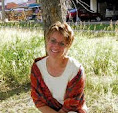Peace Bridge
Today’s recommended title will be of particular interest to
Calgarians, Albertans and Canadians.
Bridges: an Introduction to Ten Great Bridges and Their Designers
by Didier Cornille introduces us to 10 bridges from various countries spanning
the globe providing a brief entry about the architects who designed them and sometimes
a little about the construction process.
Each bridge has a something distinct about it, whether it was for a new
construction process, a new design, extraordinary length, or a design feature.
Among the selected few is Calgary’s own Peace Bridge
designed by Santiago Calatrava (2012).
The other bridges include:
Iron Bridge designed by Thomas
Farnolls Pritchard (England, 1779)
Brooklyn Bridge designed by John
Roebling, Washington Roebling and Emily Warren (United States, 1883)
Forth Bridge designed by Sir John Fowler
and Sir Benjamin Baker (Scotland, 1890)
Plougastel Bridge designed by Eugene
Freyssinet (France, 1930)
Sydney Harbour Bridge designed by
John Jacob Crew Bradfield (Australia, 1932)
Golden Gate Bridge designed by
Joseph Baermann Strauss (United States, 1937)
Rio-Niteroi Bridge designed by Jean
Muller (Brasil, 1974)
Millau Viaduct designed by Norman
Foster and Michel Virlogeux (France, 2004)
Mucem Footbridge designed by Rudy
Ricciotti (France, 2013)
Each entry is very brief. I love the format of the book, which is oversized and read turned on its side so we are flipping the pages up.
This is great for giving the reader a sense of length, giving the illustrations of each bridge lots of room to span the page. The details usually include a little
information about the designer including other projects they’ve been involved
in and most often specifics about the construction process. The illustrations are simple, uncluttered and
placed on pages with lots of white space.
The entry for the Peace Bridge in Calgary features several
of Calatrava’s other structures giving only two short pages dedicated to the
Peace Bridge itself. However cool looking this bridge there is not a lot of
information about it in terms of construction.
Another thing I noticed is that with the exception of Emily
Warren, who stepped in when her husband died building the Brooklyn Bridge there
are no women featured here. There have to be some noteworthy bridges designed
by women, right?
This book will be of interest to teachers for science
(building things, designing), STEM, and social studies (Alberta, Canada, local politics).
I would recommend this for middle grades.














0 comments:
Post a Comment